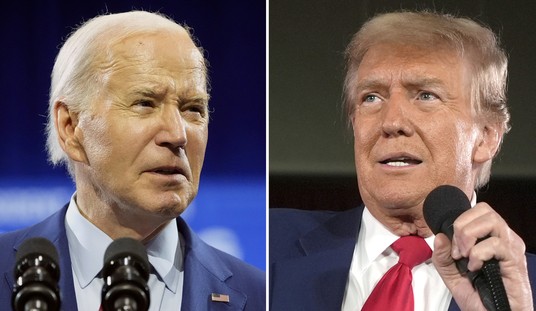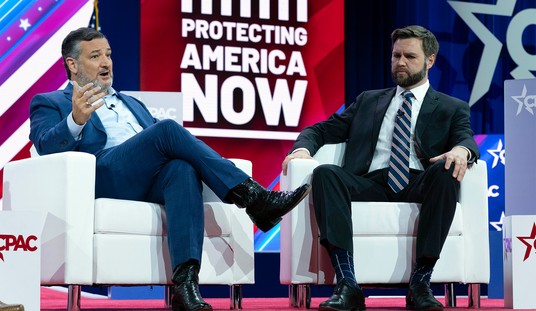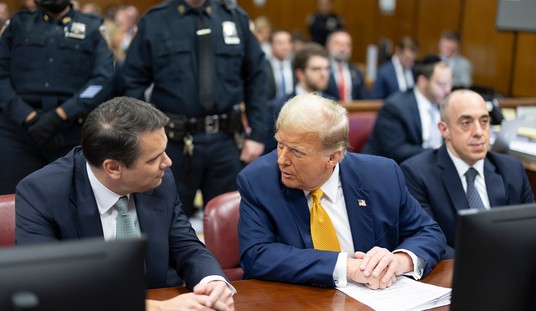Up until yesterday afternoon, everything was going according to plan for the leadership of the Chicago Teachers Union.
Having been saddled with a law that required 75 percent rank-and-file approval to authorize a strike, CTU went out and got 90 percent. The mayor, though a prominent Democrat and ally of President Obama, was not a sympathetic figure, regardless of whether one viewed his proposals as fair or not. The CTU president had run on a platform of greater militancy against school reforms such as those championed by the mayor. And, most of all, CTU was ideally positioned to present itself as the successor to the Wisconsin protesters and Occupy demonstrators, holding the progressive line against corporate privatizers.
The strike began with overwhelming teacher and union support, and substantial public support – though the latter was somewhat overstated; a 47%-39% margin at the onset of a strike is not remarkable. Timing the strike just after payday gave CTU a two-week window to conclude its narrative and broker a deal.
Given the stakes, once begun the strike had to last at least until Friday. No major union wants to go through the time and expense of organizing picket lines and rallies, plus print signs and publications, only to toss them the next day. Apparently the district dropped its standardized test/teacher evaluation demands very late Tuesday night, which led to all the speculation that the strike would soon end. CTU president Karen Lewis said of the circumstance, “I’m smiling. I’m very happy.”
Of course there were details to be worked out, and a House of Delegates vote to be taken, but the delay just reinforced the notion that a) no one wanted to return to school on a Friday; and b) CTU could still hold the massive rally it had planned for Saturday.
So Sunday’s vote was meant to be a way to declare victory, and celebrate Lewis and her CORE slate as conquering heroes. Hence the shock of everyone involved when the delegates didn’t exactly stand up and cheer en masse.
I don’t have any independent accounts of what happened during the debate, but something definitely took the air out of Lewis and her officers. They went from “We believe this is a good contract” to “This is not a good deal by any stretch of the imagination” in a matter of a few hours. Especially curious was Lewis continually referring to the proposed agreement as “the deal that the board had” – as if no bargaining had taken place.
Ultimately, the delegates wouldn’t end the strike without all the details spelled out in writing, and then they wanted a chance to analyze them. Lewis emphasized that the delegates didn’t trust the district. Left unsaid was that they didn’t trust Lewis and her team to not get snookered by the district.
So what went wrong? How did this get all jammed up at the last minute? Three forces are in play:
1) We all forgot – including me – that Karen Lewis and her slate were elected in 2010 by less than 60 percent of CTU members in a run-off, after she managed to unify all the opposition against incumbent president Marilyn Stewart. By all accounts, the members and various union factions have all been united behind Lewis during the strike, but some fissures appeared over ending the strike. An NBC-TV affiliate reported some infighting, but even if the story is overblown, the House of Delegates did not meekly acquiesce to Lewis’ wishes, and that opposition had to be organized by someone.
2) Lewis said that the delegates felt “rushed” and that many of them were not familiar with the particulars of the agreement. That’s the result of the high amount of information control exercised by both the district and the union in contract negotiations. It’s not unreasonable for the CTU delegates to want time to examine the contract and make an informed decision. Why then doesn’t that right extend to the voters and people of Chicago? Instead the media and the rest of the city have to camp outside waiting for the white puff of smoke that signifies the anointing of a new collective bargaining agreement. Every member of CTU will get an opportunity to vote up or down on any tentative agreement. The voters of Chicago will not get that privilege, but they will still have to pay for it.
3) None of the above would have mattered if CTU had made it clear from the very beginning why it was going on strike. The union said money wasn’t the issue, and that appears to be the case. I haven’t heard anyone describe the district wage offer as inadequate and justification for a strike. It appeared to be the teacher evaluation system, but much of that was dictated by state law, and the district backed off its position mid-week. Without a definite way to measure victory, everyone involved filled in their own bubbles: Recall rights, class size, air conditioning and textbooks were all trotted out, and then yesterday Lewis said school closures “undergird” everything. When the proposal was placed before the delegates, they all wanted to be sure the issue they thought the strike was about was taken care of. All those who have been celebrating this walkout for the past week own some responsibility for raising expectations among the delegates and the rank-and-file over what could be gained. Now that they see the bottom line, many were bound to be disappointed.
Mayor Rahm Emanuel, not known for his easygoing nature, was upset that all the positive stuff he heard at the end of last week didn’t amount to anything and he lost his temper. Filing for a court order to put an end to the strike was a weak gesture at this stage of the game, and it may have been very counterproductive as it is bound to get the delegates up on their hind legs before the vote.
There is one final complication to consider – as if it weren’t complicated enough already. I remind you again that no one has yet missed a paycheck (Friday the 21st is payday). Traditionally at the end of a strike, language is worked out so that the missed school days are made up at the end of the year so no one loses any money – neither the district for having fewer instructional days than required by law, nor the teachers for missing days of work. All by itself this can become a bone of contention between the parties.
I honestly don’t think anyone “wins” this strike. Gains made by the “you can’t stomp on unions!” crowd are offset by gains made by the “you can’t negotiate with those unions!” crowd. This battle may be drawing to a close, but it looks like both sides will finish with more ammunition than they had at the start.
This post was promoted from GreenRoom to HotAir.com.
To see the comments on the original post, look here.








Join the conversation as a VIP Member